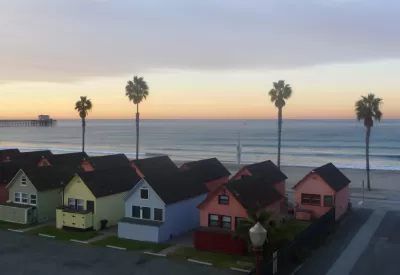Why local governments can not always be trusted to run housing policy.

When I write about how zoning increases rents and housing prices, I often get comments stating something like: "I realize that neighborhood elites often abuse zoning, but shouldn’t towns and cities be able to balance the interests of neighborhood residents with broader public interests?" Ten year ago, I would have said, "yes." But now, I favor broader, more radical remedies that limit municipal zoning rights. Why?
First, because under the current zoning system, it is irrational for a neighborhood or small municipality to do the right thing for the region's residents (that is, to allow new housing). Here's why: if my suburb or neighborhood is the only one to allow new housing, it gets flooded with any negative effects of new housing, but the impact of our virtuous deeds on regionwide housing costs is likely to be so small than even our existing renters won't see much of a benefit. Similarly, if my suburb or neighborhood is the only one to allow nonprofit or government-subsidized housing for poor people, my suburb gets all the costs of poverty (for example, a weaker local tax base) but may not benefit very much from a regional decline in homelessness. Thus, the town or neighborhood that allows new housing is essentially being a sucker.
By contrast, if every neighborhood allows new housing or subsidized housing, housing prices stay down for everyone and the rate of homelessness declines, benefiting the region as a whole. In a situation where what is rational for everyone is irrational for each individual municipality or neighborhood, the only way to ensure rational policy is to ensure uniformity: that is, for a higher level of government to take a meat ax to zoning across the region.
Second, many areas of law are based on the proposition that if a privilege has been scandalously abused, that privilege can be withdrawn by government or by a higher level of government. For example, in the abstract it might appear reasonable that states should limit the right to vote to people who can read, because illiterates might not be capable of voting responsibly. But in the pre-civil rights South, cities and states used literacy tests as a way to keep African-Americans from voting. To stop such abuse, Congress prohibited literacy tests in the Voting Rights Act. Zoning is like the literacy test: a policy that makes sense in principle, but that has been so scandalously abused that local governments can no longer be trusted with the privilege.
So if local jurisdictions cannot be trusted to balance interests, how far should states go to stop such abuse? It seems to me that even the most expensive housing markets do not suffer any obvious shortage of retail or offices or industry, so there is no reason for states to limit non-housing zoning. But where a housing crisis exists, local governments should no longer be allowed to use zoning to limit housing.

Maui's Vacation Rental Debate Turns Ugly
Verbal attacks, misinformation campaigns and fistfights plague a high-stakes debate to convert thousands of vacation rentals into long-term housing.

Planetizen Federal Action Tracker
A weekly monitor of how Trump’s orders and actions are impacting planners and planning in America.

In Urban Planning, AI Prompting Could be the New Design Thinking
Creativity has long been key to great urban design. What if we see AI as our new creative partner?

Massachusetts Budget Helps Close MBTA Budget Gap
The budget signed by Gov. Maura Healey includes $470 million in MBTA funding for the next fiscal year.

Milwaukee Launches Vision Zero Plan
Seven years after the city signed its Complete Streets Policy, the city is doubling down on its efforts to eliminate traffic deaths.

Portland Raises Parking Fees to Pay for Street Maintenance
The city is struggling to bridge a massive budget gap at the Bureau of Transportation, which largely depleted its reserves during the Civd-19 pandemic.
Urban Design for Planners 1: Software Tools
This six-course series explores essential urban design concepts using open source software and equips planners with the tools they need to participate fully in the urban design process.
Planning for Universal Design
Learn the tools for implementing Universal Design in planning regulations.
Gallatin County Department of Planning & Community Development
Heyer Gruel & Associates PA
JM Goldson LLC
City of Camden Redevelopment Agency
City of Astoria
Transportation Research & Education Center (TREC) at Portland State University
Jefferson Parish Government
Camden Redevelopment Agency
City of Claremont






























